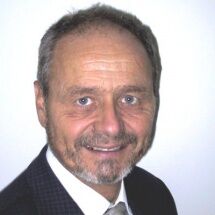Berndt Feuerbacher
BERNDT FEUERBACHER BECAME THE PRESIDENT OF THE INTERNATIONAL ASTRONAUTICAL FEDERATION IN SEPTEMBER 2008.
What does the IAF President do?
The IAF is a very big organisation with thousands of volunteers all over the world active in various ways. There is a very professional Secretariat based in Paris. The role of the President is to keep all of this together!
You have been President since October. What have been the highlights so far?
The nice thing is working together with high-level and highly motivated people in a very professional environment. Everything to do with space is here in the IAF.
How did you become involved with the IAF? What is your background?
I am a scientist! In this function that’s a little bit unusual. I was involved in early experiments with lunar dust from the Apollo missions. I started with ESA in the Space Science department and I worked a lot with microgravity and material science at DLR. I worked on the Philae lander which is presently on its way to Comet 67 P/Churyumov- Gerasimenko. This will be detached from the Rosetta mission after the rendezvous in 2014 and actually land on the comet. A very exciting and unique mission.
How do you see the role of IAF President developing over the next few years?
2009 sees the 60th International Astronautical Congress. The IAF has come quite a long way from an institution running a single congress during the year. Now it is a communication organisation working globally, networking in the space field all over the world, bringing together people and ideas. I would like to emphasize two areas. We now have about 200 members in 47 countries. We should enlarge our membership. In particular we would like to put some more emphasis on upcoming emerging space nations. For example we are holding our Congress in South Africa in two years from now. We would also like to develop our work with the young generations. At the Glasgow congress last year we had about a third of participants below the age of 30. That’s a great success. We are now in a situation where more and more young people, enthused by space, are becoming active in our Federation. It’s a changing industry with missions maybe going back to the Moon and Mars along with the private space tourism field. What are the challenges ahead? Space tourism companies are already very well integrated into the Federation. We have members from this field and from the new commercial players in the area of exploration. This is what will really bring us in the future to a very strong position. Exploration is something that still excites people in a similar way the Apollo missions did two generations earlier. We are celebrating the 40th anniversary of the lunar landing this year. This is an event that many of us still remember very well. If in the future we have missions to the Moon again and maybe to Mars, they will have a similar stimulating effect on all generations! The complete video of this interview is available here.

